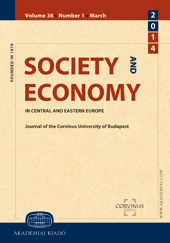Job-training of Hungarian higher-education graduates
Job-training of Hungarian higher-education graduates
Author(s): Péter GalasiSubject(s): Economy, Education, Higher Education
Published by: Akadémiai Kiadó
Keywords: economics of education; on-the-job training;
Summary/Abstract: Considerable amounts of time and money are spent on job-training of school leavers graduated from higher-education institutions. More than a half of the employees in our sample participated in job-training between the graduation date (1999) and September 2000. The work in this paper considers two aspects of the problem. First, the relationship between training probability/training length and the initial human capital (proxied by level of education and in-school labour-market experience) is concerned with, and, second, some elements of the training-cost-sharing decision is analysed. There are some signs that university education reduces the probability of training as compared to college education, whereas in-school labour-market experience increases it. University education reduces training length as well. In-school labour-market experience has no effect on the length of job-training. Another important result is that school-leavers holding diplomas with “narrower” types of education are more likely to obtain training, and also to have longer training programmes. This implies a more severe matching problem in the case of “narrower” types of education, possibly due to prohibitive searching costs for finding a good-quality match. Results for the cost-sharing decision are in line with Becker's idea, since the firm is less likely to entirely cover the costs of general training and more likely to finance job-specific training programmes
Journal: Society and Economy. In Central and Eastern Europe ǀ Journal of the Corvinus University of Budapest
- Issue Year: 26/2004
- Issue No: 1
- Page Range: 105-125
- Page Count: 21
- Language: English

